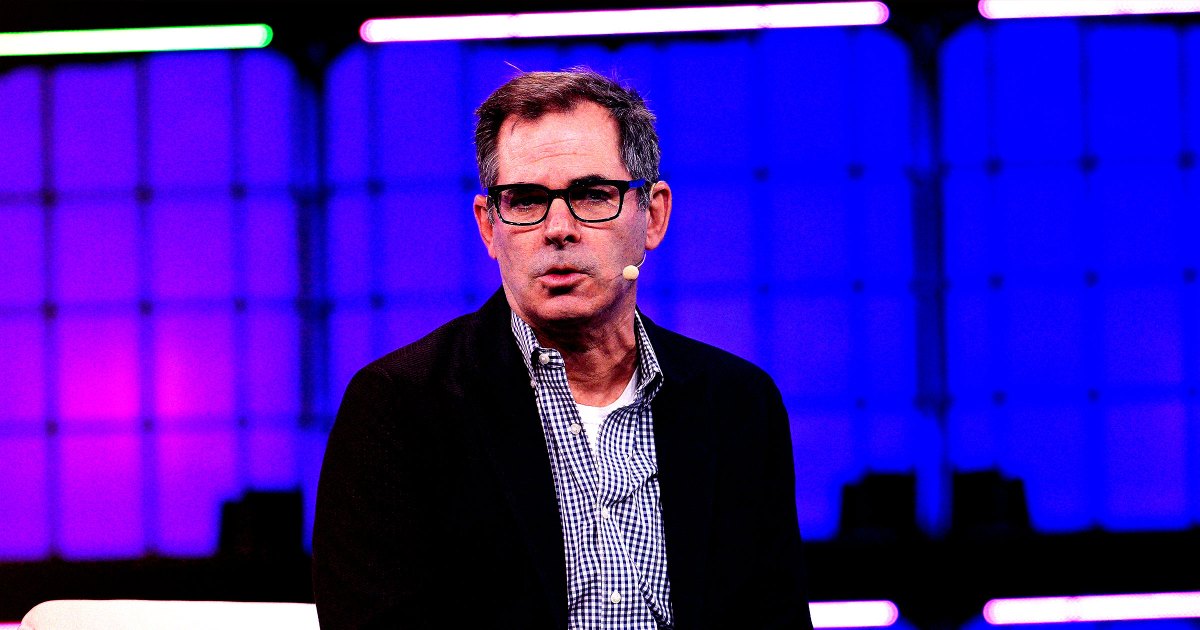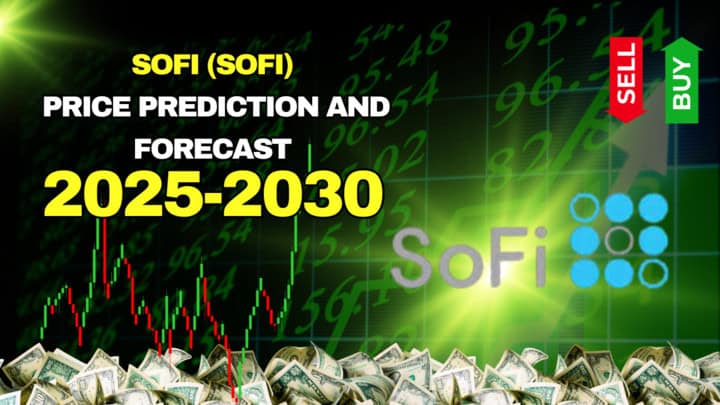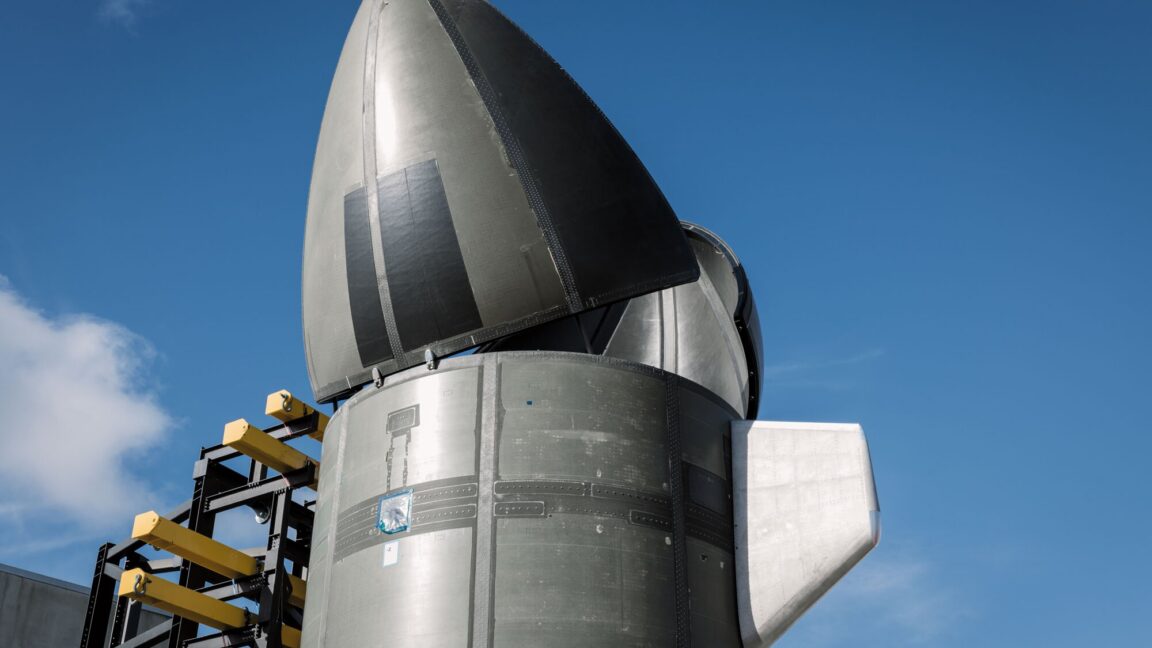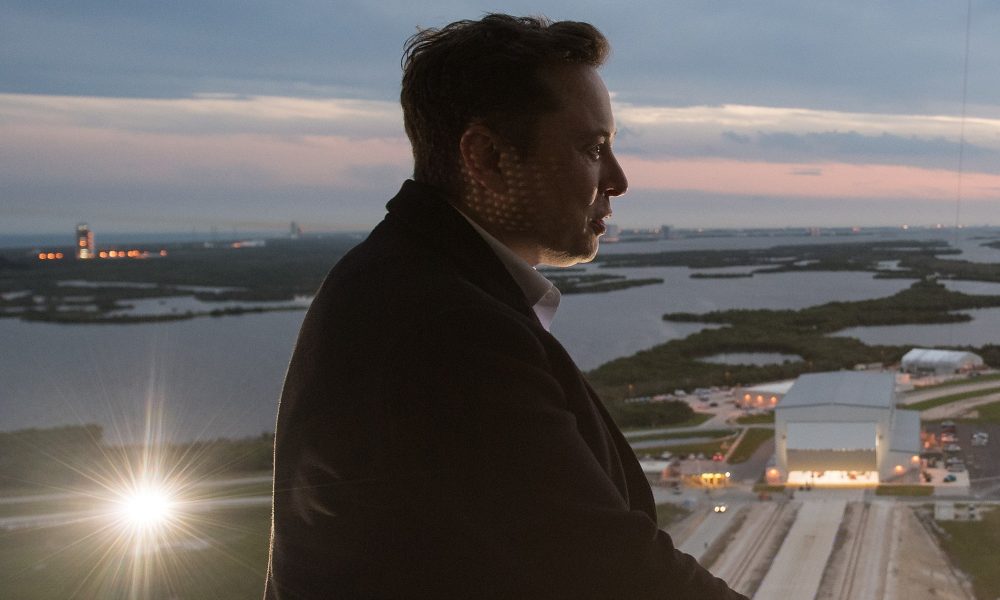Venture
Venture
[ follow ]
#venture-capital #startup-funding #fintech #venture-funding #spacex-ipo #entrepreneurship #ai-startups
fromTechCrunch
19 hours agoMarissa Mayer's new startup Dazzle raises $8M led by Forerruner's Kirsten Green | TechCrunch
After spending the last six years running Sunshine, a photo-sharing and contact-management startup with little success, the storied tech leader has shuttered the company to launch Dazzle, a new startup focused on building the next generation of AI personal assistants. While Mayer is not yet sharing specifics about Dazzle's functionality, she has revealed that the company has raised an $8 million seed round at a $35 million valuation.
Venture
fromBitcoin Magazine
20 hours agoStablecoins: Evolution, Not A Revolution
Technologies tend to have a natural ceiling built into their utility and popularity. Once they've solved all the problems they can solve, their growth is effectively capped. As soon as all potato fans own a potato peeler, the peeler market's growth potential is largely tapped out. Indeed, the big question around AI at the moment is how many problems it will be able to solve. The market could already be overblown, or it could be practically limitless.
Venture
fromBusiness Matters
2 days agoEdinburgh startup secures 750k to build robots that clean ships' hulls
ScrubMarine is developing autonomous hull-cleaning and inspection robots that target biofouling - the build-up of algae, barnacles and slime on ships' hulls. This growth increases drag, driving up fuel consumption and emissions. Devanathan estimates biofouling adds more than $100 billion a year to global shipping costs. "Biofouling is a hidden problem, but it's a massive one," he said. "It increases drag on the vessel, which increases fuel burn. That's a huge cost for operators, and it's also bad for the environment."
Venture
Venture
fromTearsheet
1 day agoHow TruStage Ventures built connective tissue between fintechs and credit unions - Tearsheet
Relationship-driven partnerships unlock credit union distribution; TruStage Ventures bridges fintechs and credit unions, enabling scaled adoption and rising demand for stablecoin solutions.
Venture
fromTechCrunch
2 days agoIsrael's famed VC Jon Medved, diagnosed with ALS, backed the tech that will improve his life | TechCrunch
Jon Medved retired after an ALS diagnosis, facing a progressive, incurable motor-neuron disease despite founding OurCrowd and helping build Israel's startup ecosystem.
Venture
fromTechCrunch
4 days agoSequoia partner spreads debunked Brown shooting theory, testing new leadership | TechCrunch
Sequoia partner Shaun Maguire falsely accused a Palestinian student of the Brown shooting, sparking backlash and renewed concerns about Sequoia's tolerance of inflammatory speech.
Venture
fromFortune
4 days agoI lead Goldman Sachs' alternatives for wealth globally. Around the world, investors want to know more | Fortune
Wider individual access to alternative investments increases portfolio options but also adds complexity requiring careful understanding of liquidity, valuation, and manager selection.
from24/7 Wall St.
4 days agoIs TikTok -- Not AI -- What Saves Oracle?
The TikTok deal positions Oracle as a key investor and security partner, potentially providing a new revenue stream through cloud services and data management for TikTok's 170 million U.S. users. While Oracle's cloud infrastructure growth has been driven primarily by artificial intelligence (AI) demand, concerns have skyrocketed in recent weeks over Oracle's debt and capital expenditures, as well as fears of an AI-spending slowdown.
Venture
Venture
fromTechCrunch
5 days agoWhy this year's best tech talks happened over cocktails at StrictlyVC | TechCrunch
StrictlyVC provides intimate, content-rich evening events that connect industry leaders across AI, consumer tech, defense, crypto, and government, fostering candid conversations and real connections.
fromTechCrunch
5 days agoThese 21-year-old dropouts raised $2M to build Givefront, a fintech for nonprofits | TechCrunch
Givefront, a YC-backed startup founded by 21-year-old Harvard dropout Matt Tengtrakool and UC Berkeley's Aidan Sunbury, aims to change that. The company is building a financial platform designed specifically for nonprofits, including food banks, animal rescues, non-governmental organizations, churches, and homeowner associations. Nonprofits generate roughly 6% of the U.S. GDP and contribute trillions of dollars each year, yet most still rely on outdated financial tools. Givefront believes that modern spend management, compliance, and reporting infrastructure-tailored to nonprofit realities-can unlock significant efficiency gains across the sector.
Venture
fromFortune
5 days agoA 24-year-old CEO convinced his parents to open a custodial account in second grade. He fears meme stocks inflate Gen Z's dreams of getting rich quick | Fortune
A Harris Poll survey commissioned by Dub in June highlights the contradiction: While 60% of Gen Z and 66% of millennials are investing in the stock market outside of their 401(k)s, just 17% of Americans feel "very confident" in their understanding of how markets actually work. Most believe investing, rather than a traditional nine-to-five career, offers the fastest path to wealth-a dream increasingly shaped by viral TikTok finance videos or meme-stock success stories rather than grounded investment knowledge, Wang told Fortune this summer.
Venture
fromBusiness Insider
5 days agoErebor Bank, Palmer Luckey's crypto-oriented finance startup, just got one step closer to launching
Erebor Bank, Palmer Luckey's finance startup backed by some of the biggest names in tech, got one step closer to launching after it cleared another key federal hurdle this week. The Federal Deposit Insurance Corp. approved Erebor on December 16 with conditions: The bank is subject to a strict capitalization requirement and must have investors ready to provide more funding if called upon. The bank still requires final approval from the Office of the Comptroller of the Currency.
Venture
from24/7 Wall St.
5 days agoMy Top Vanguard ETFs To Buy In 2026
At the core of any move back to ETFs as a major part of your portfolio is going to be looking for safety. In this market, timing when to get in and out is next to impossible, and with interest rate uncertainty and the potential of an "AI bubble." Instead of trying to hand-pick stocks in a market that is punishing earnings misses with brutal results, Vanguard ETFs solve this search by allowing you to essentially "own" the market rather than tying your fortunes up in the hands of a few simple companies.
Venture
Venture
fromAlleywatch
6 days agoOctane Raises $100M to Scale Digital Financing Platform Across $150B Recreational Markets
Octane provides an end-to-end digital financing platform and captive lending services that streamline large-ticket recreational purchases and enable dealers and OEMs to increase sales.
fromresund Startups
6 days agoPSV Hafnium Announces Oversubscribed 60M Fund to Accelerate Nordic Deep Tech Innovation
PSV Hafnium's successful final close is a strong signal for deep tech innovation in Denmark and the Nordics. The pace at which new research-driven technologies are emerging from DTU's laboratories has never been higher, and the need for early-stage capital that dares to back initial scientific breakthroughs is critical. PSV Hafnium embodies this mission when helping researchers translate frontier research into global solutions. DTU is proud to have initiated and supported the fund from its inception, as early-stage funding is a
Venture
fromBusiness Insider
1 week agoThe FBI is investigating a startup founder accused of using VC money to pay for her house and a Caribbean wedding.
In a civil complaint, the SEC has charged Luckey with violating securities laws for using millions of dollars of company funds to pay for her home, Super Bowl tickets, and a destination wedding in the Caribbean. The SEC alleges she painted a rosy picture of the company's booming revenue when ComplYant never brought in more than $620 in monthly revenue.
Venture
Venture
fromLondon Business News | Londonlovesbusiness.com
1 week agoStrategic integration of catalytic capital in family office portfolios - London Business News | Londonlovesbusiness.com
Family offices adopt a total-portfolio approach aligning core, operating, philanthropic, and catalytic capital to pilot, de-risk, and scale mission-aligned investments.
Venture
fromFortune
1 week ago'I had to take 60 meetings': Jeff Bezos says 'the hardest thing I've ever done' was raising the first million dollars of seed capital for Amazon | Fortune
Jeff Bezos raised Amazon's first seed round after 60 meetings, securing about 20 investors who each invested roughly $50,000 for 20% of the company.
fromTechCrunch
1 week agoIndia's Spinny lines up $160M funding to acquire GoMechanic, sources say | TechCrunch
Spinny, an Indian online marketplace for used cars, is raising around $160 million as it moves to acquire car services startup GoMechanic, TechCrunch has learned. The Series G round, which includes a mix of primary and secondary transactions, would value the 10-year-old startup at about $1.8 billion post-money, three people familiar with the matter said, broadly in line with its previous valuation.
Venture
fromTechCrunch
1 week agoHarness hits $5.5B valuation with $240M raise to automate AI's 'after-code' gap | TechCrunch
As AI accelerates code production, it is widening a bottleneck in the far larger "after-code" phase of software development - the testing, security checks, and deployment work that still consumes nearly 70% of engineering time. Harness's tools help automate this sprawling, error-prone layer, even as enterprises grapple with rising AI code volume and the risks of shipping even a single line of faulty software into production systems.
Venture
fromBusiness Insider
1 week agoI invented a new type of landline for kids, and my daughter's friends tested it out. This year, we've raised $3.5 million in funding.
About three years ago, I was picking my daughter up from school and started chatting with parents about how arduous it is to run the kids' social lives. One mom said that she felt like an executive assistant for her daughter. There was a lot of frustration and angst toward the kids, and as a dad of three, I understood it.
Venture
fromTelecompetitor
1 week agoGrain Management sells Hunter Communications to Oak Hill Capital
Oak Hill Capital is buying Hunter Communications, Oregon's largest privately-owned fiber-optic internet provider, from Grain Management for an undisclosed sum. Hunter Communications has more than 3,000 route miles of fiber infrastructure, and Grain Management initially invested in the company in 2020. Much of Hunter Communications' growth in terms of markets served and products offered happened under the ownership of Grain Management.
Venture
from24/7 Wall St.
1 week agoFrankly, Retirement Is Easy With These Three ETFs
Whether you're already retired or planning for one, investing in retirement will require a balance of strategies that ensure income for the short term and long term. If you invest in the right types of exchange-traded funds (ETFs), you can build a diversified portfolio that ensures steady passive income and capital growth. With hundreds of ETFs in the market today, you need to be careful when you're picking one.
Venture
fromFortune
1 week agoExclusive: Crypto startup LI.FI raises $29 million for cross-blockchain price discovery tool | Fortune
When businesses decide to engage with crypto, they quickly discover the landscape is fragmented across numerous blockchains. If they want to move assets between different chains, they must often rely on a technology called bridging that can prove insecure and expensive. Philipp Zentner, cofounder and CEO of LI.FI, created his company to address these issues. The startup provides businesses with price comparisons of exchange rates and bridging fees. It also aims to find businesses the most efficient and cost-effective pathway for each transaction.
Venture
from24/7 Wall St.
1 week agoSolana vs. Avalanche: Which Scalable Network Will Outgrow the Other in 2026?
Solana is really among the most scalable and lowest-cost networks out there. That's this project's selling point, and it's the reason why so many developers, users and investors have continued to flock to this platform over time. Being able to process nearly 1,000 transactions per second (and well more than that, theoretically), Solana has become a top network for decentralized exchanges and other projects focused on high-volume trading due to this network's speed, but also its rock-bottom transaction costs.
Venture
fromTechCrunch
2 weeks agoUnconventional AI confirms its massive $475M seed round | TechCrunch
Naveen Rao, the former head of AI at Databricks, has raised $475 million in seed capital at a $4.5 billion valuation for his new startup, Unconventional AI. The round was led by Andreessen Horowitz and Lightspeed Ventures, with participation from Lux Capital and DCVC. The funding is a first installment towards the goal of up to $1 billion for the round, Rao told Bloomberg.
Venture
fromAlleywatch
1 week agoPermitFlow Raises $54M to Cut Permit Approval Times from Months to Days
America's $1.6T construction industry faces a critical infrastructure crisis: while housing starts reached 1.43M units in mid-2025, 77% of developers report permitting delays, with cities like San Francisco averaging 33 months just to secure approval. This pre-construction bottleneck has compounded a 4.7M housing unit shortage, pushing median home prices up $88K since 2020 while construction timelines stretch beyond 300 days from permit to final inspection in many markets.
Venture
fromTheregister
2 weeks agoDatacenters now fund Boom Supersonic's aviation business
He therefore texted OpenAI CEO Sam Altman, who apparently confirmed the veracity of those posts, before contacting Boom's engineering team, who unbeknown to Scholl had already created "the outline of a plan to build a power turbine based on our Symphony supersonic engine." "After a few conversations, it became clear: AI didn't just need more turbines - it needed a new and fundamentally better turbine," Scholl wrote.
Venture
fromBusiness Insider
2 weeks agoInstead of applying for jobs, this AWS exec writes proposals for new roles she wants to create
AWS executive Sarah Cooper has launched several companies and held roles at NASA and AWS, but she's only ever formally interviewed for three jobs. Instead, Cooper told Business Insider that her career moves often begin with writing a proposal about the work she wants to pursue, either to a VC, a cofounder, or an executive leader, and that becomes the role she steps into.
Venture
fromBusiness Insider
2 weeks agoIf this startup wins, Nvidia's software reign over AI chips could end
Cofounders Chris Lattner and Tim Davis have spent decades building the software plumbing that sits beneath the modern tech industry. Lattner is famous for creating Apple's Swift programming language. He also built the software underpinning Google's TPU AI chips, with Modular cofounder Tim Davis. They're now aiming that expertise at CUDA itself. The attempt borders on madness, but it's the kind of audacious project that could transform the AI industry.
Venture
[ Load more ]






















